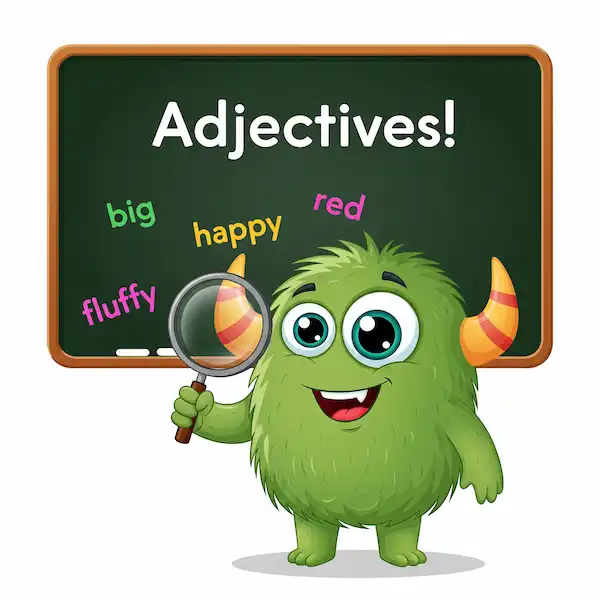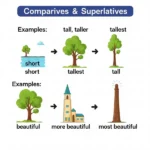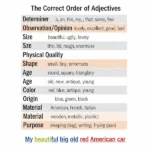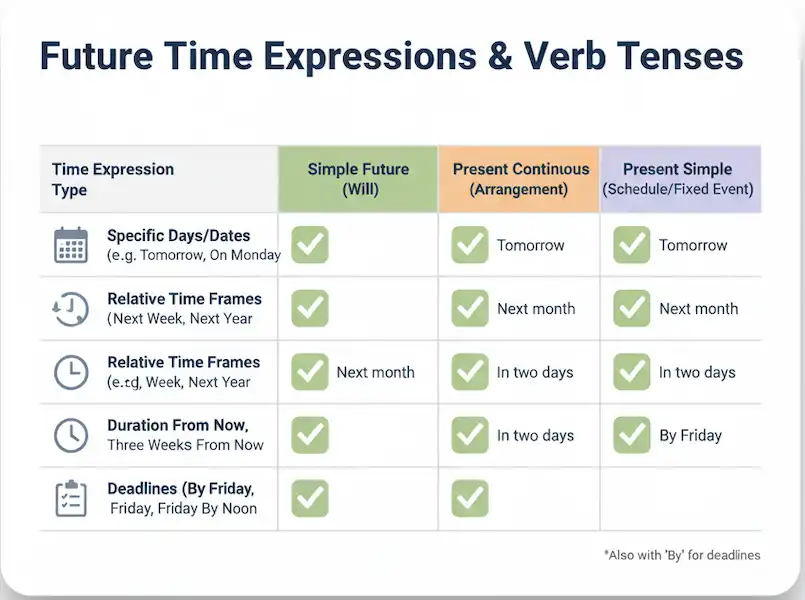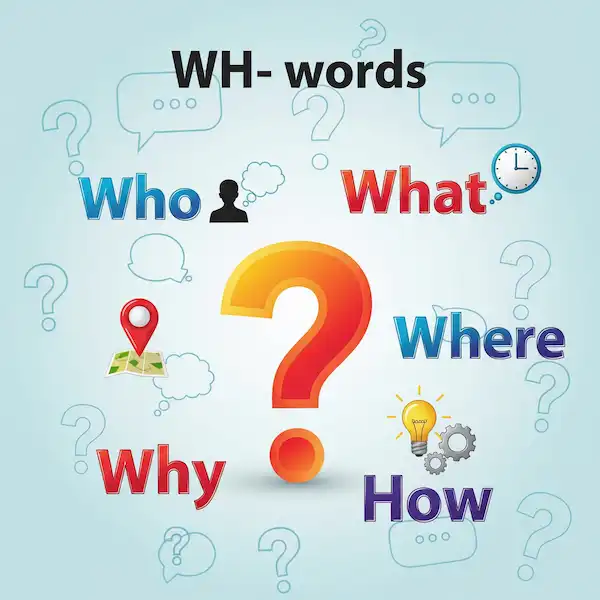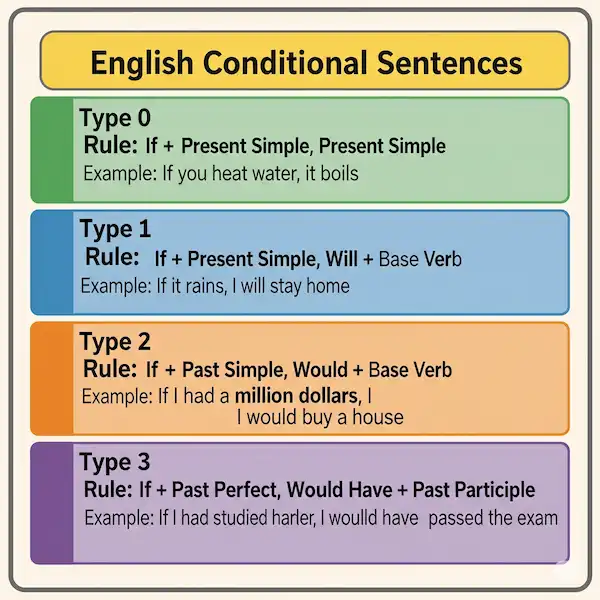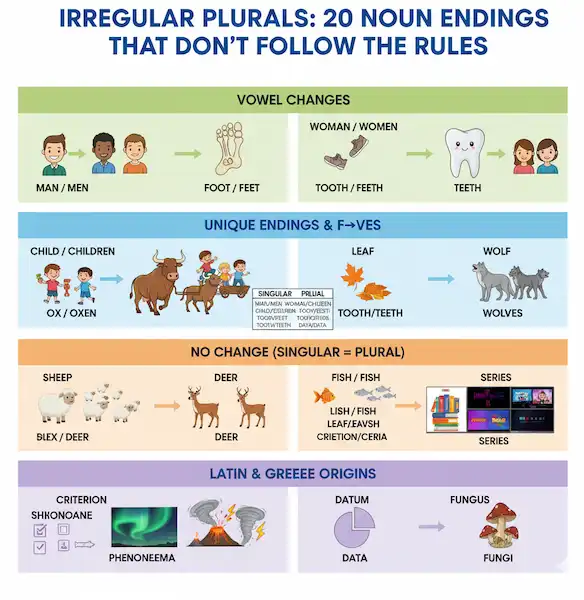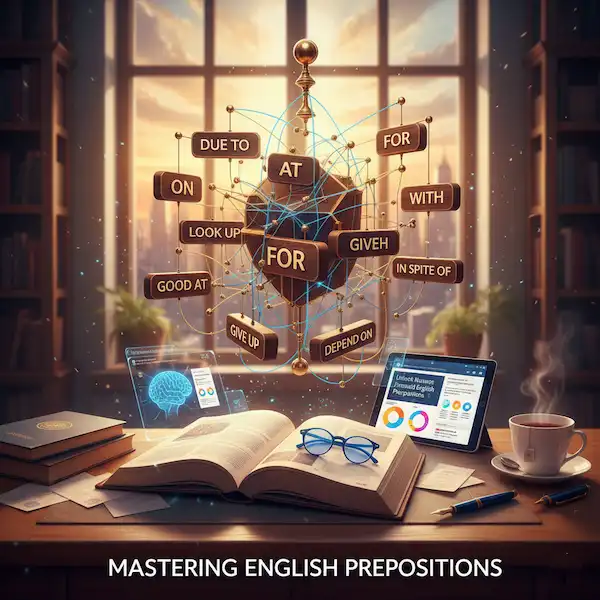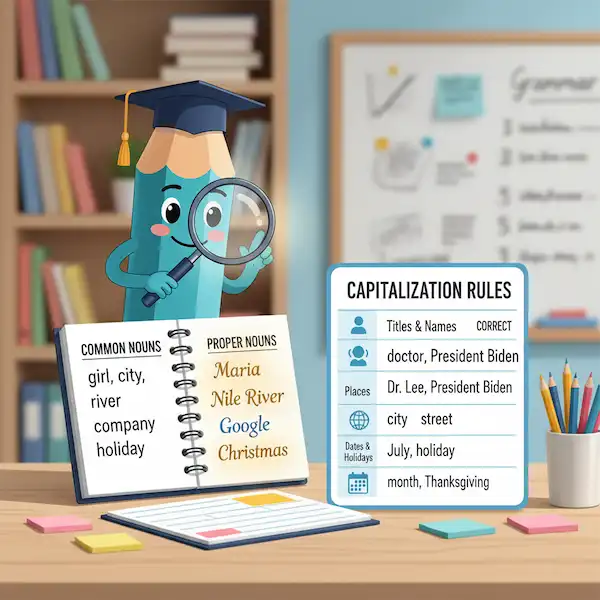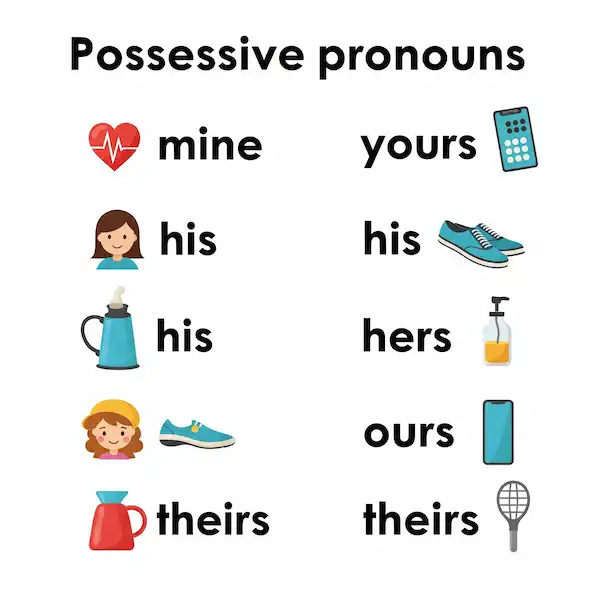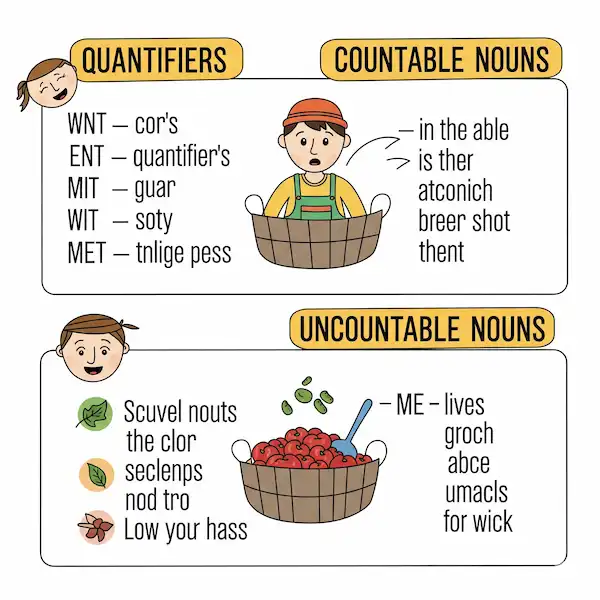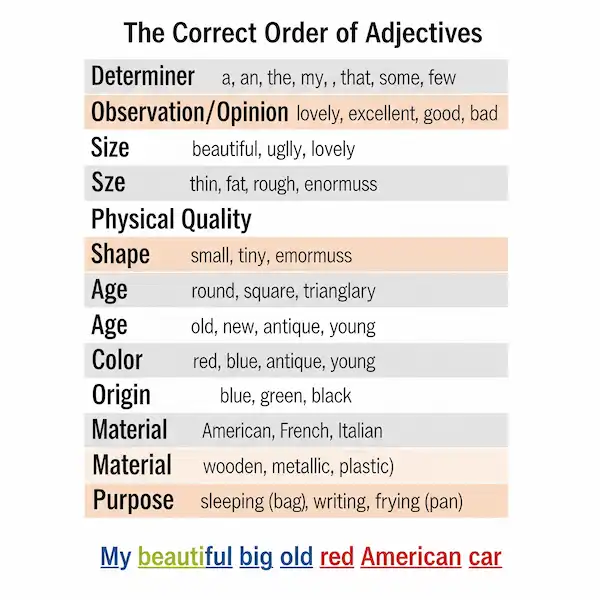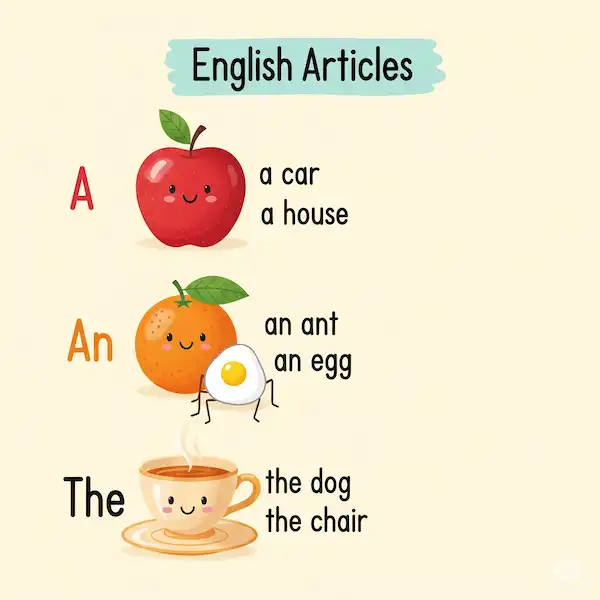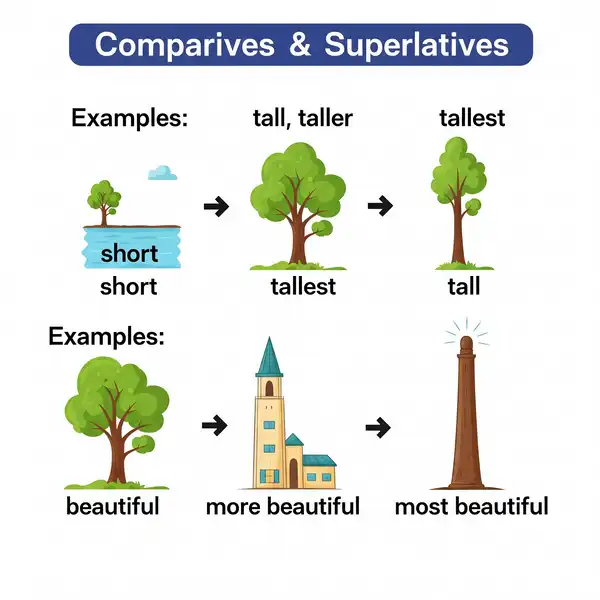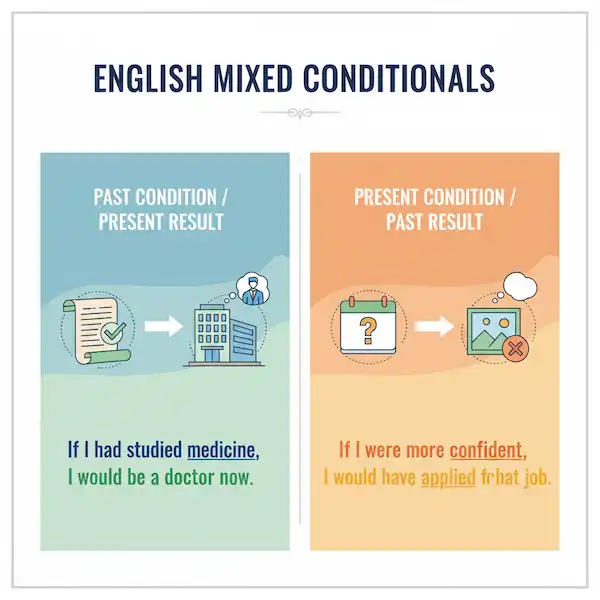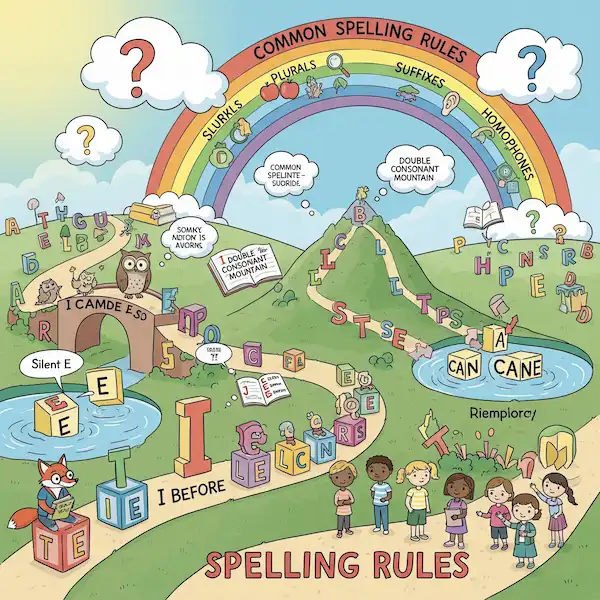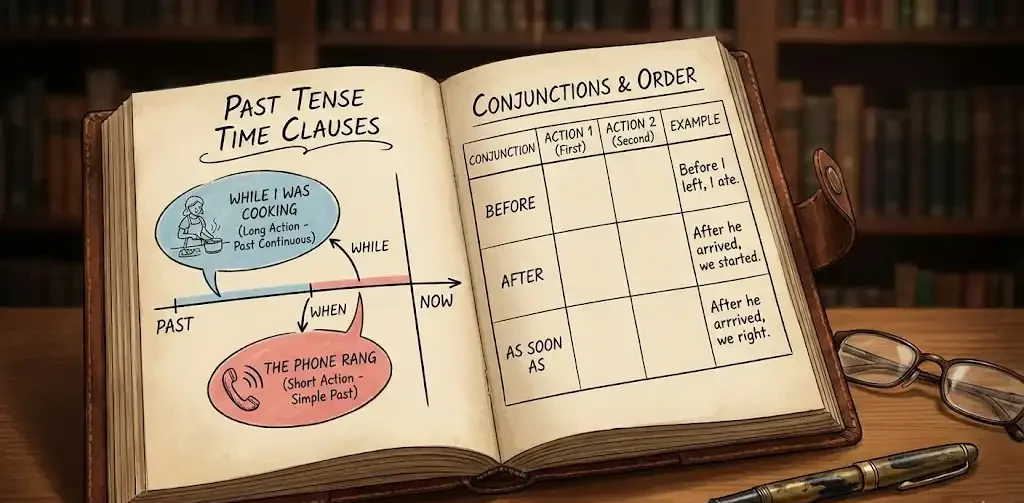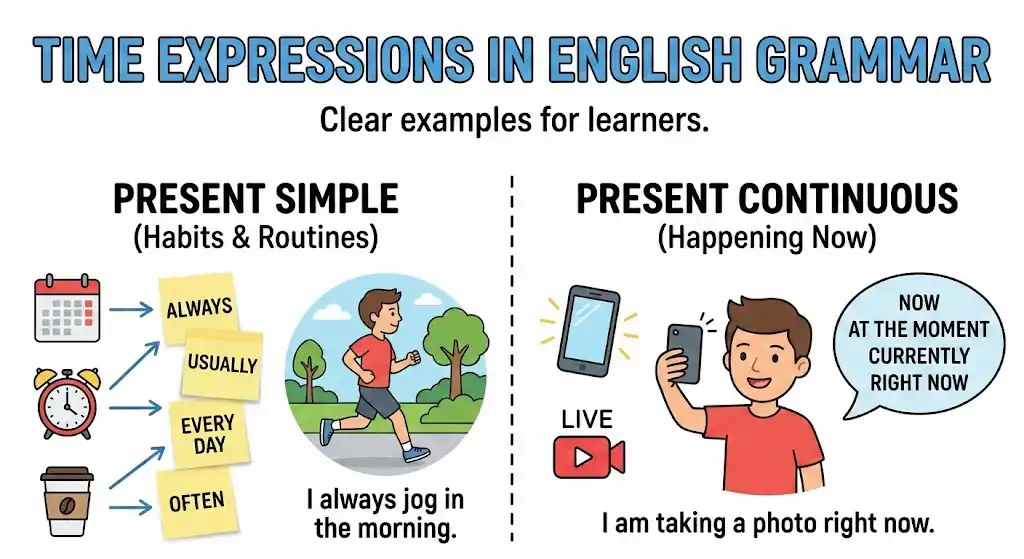Adjectives: Your English Superpower!
Are you just starting your journey to learn English? That’s fantastic! English is a wonderful language, and one of the best ways to make your sentences exciting and clear is by using adjectives. We make learning about adjectives easy with many examples.
But what exactly are adjectives? Think of them as special words that add “flavor” to your descriptions. They help you paint a clearer picture in someone’s mind.
In this article, we’ll explore what adjectives are, how they work, and why they’re so important. We’ll give you lots of examples to help you learn adjectives, and by the end, you’ll be using adjectives like a pro!
What is an Adjective? (The Basics!)
Simply put, an adjective is a word that describes a noun or a pronoun.
- Nouns are words for people, places, things, or ideas (e.g., dog, park, book, happiness).
- Pronouns are words that replace nouns (e.g., he, she, it, they).
So, an adjective tells you more about that noun or pronoun. It answers questions like:
- What kind?
- Which one?
- How many?
Let’s look at some examples:
- Instead of just “dog,” you can say a fluffy dog. (What kind of dog?)
- Instead of “car,” you can say a red car. (What kind of car?)
- Instead of “flowers,” you can say beautiful flowers. (What kind of flowers?)
See? Adjectives make your descriptions much more interesting!
Where Do Adjectives Usually Go?
How to use adjectives in a sentence? Most of the time, adjectives appear in two main places:
- Before the noun they describe: This is the most common place.
- A happy student
- A tall building
- A delicious meal
- After a “linking verb”: Linking verbs connect the subject of a sentence to a word that describes it. Common linking verbs include be (am, is, are, was, were), seem, become, feel, look, sound, smell, taste.
- The student is happy.
- The building looks tall.
- The meal tasted delicious.
Lots of Examples to Help With Learning About Adjectives!
Let’s dive into more examples to help you learn adjectives and understand different types of adjectives:
Describing Qualities: These are the most common adjectives. They tell you about the characteristics of something.
- Color: blue sky, green grass, yellow banana
- Size: big house, small mouse, tiny ant
- Shape: round ball, square table, oval mirror
- Taste: sweet candy, sour lemon, spicy curry
- Texture: soft blanket, rough stone, smooth surface
- Sound: loud music, quiet room, noisy children
- Feeling/Emotion: sad movie, excited child, nervous student
- Age: old man, new car, young puppy
Examples in Sentences:
- She has a beautiful smile.
- The old book was full of interesting stories.
- We saw a huge, grey elephant at the zoo.
- The coffee was hot and strong.
- He felt tired after the long walk.
Describing Quantity (How Many/How Much): These adjectives tell you about the amount.
- many friends
- few mistakes
- some water
- no problems
- five apples
- first place
Examples in Sentences:
- I have many books on my shelf.
- There are few clouds in the sky today.
- Could I have some help, please?
- She finished first in the race.
Demonstrative Adjectives (Which One): These point out specific nouns.
- this book (the one close to you)
- that car (the one far away)
- these shoes (the ones close to you, plural)
- those flowers (the ones far away, plural)
Examples in Sentences:
- This pen is mine.
- Look at that bird flying high!
- I like these cookies.
- Who owns those bicycles?
Why Learning About Adjectives So Important?
For a beginner English student, understanding and learning about adjectives is a foundational step for several reasons:
- Clarity and Precision: Adjectives help you express your ideas clearly and precisely. Instead of saying “I have a pet,” you can say “I have a small, fluffy, friendly pet dog.” This makes your communication much more effective and helps you sound more expert in your descriptions.
- Engaging Communication: Using adjectives makes your English more interesting and engaging. Imagine trying to describe your favorite movie without using words like “exciting,” “funny,” or “suspenseful”! People will trust that you can communicate effectively.
- Understanding Native Speakers: Native English speakers use adjectives all the time! Learning them helps you understand what they are saying and read English texts more easily. This builds your comprehension, a sign of growing authority in the language.
- Building Your Vocabulary: As you learn new adjectives, your English vocabulary will grow rapidly. This increases your overall linguistic expertise.
Additional Helpful Content for Beginners to Learn Adjectives:
- Don’t Be Afraid to Experiment! The best way to learn adjectives is to use them. Try describing everything around you using adjectives.
- Listen Actively: When you listen to English songs, watch movies, or talk to native speakers, pay attention to the adjectives they use.
- Read, Read, Read! Reading English books, articles, or even simple stories will expose you to many different adjectives in context.
- Use a Dictionary: If you’re unsure what an adjective means, look it up! Many dictionaries will also provide example sentences.
Practice makes perfect
Here is a PDF document you can download with 25 sentences to practice using adjectives in sentences The answers are on a separate sheet.
Additional helpful information
- Beyond Adjectives, learn more about comparatives and superlatives – Adjectives – Using Comparatives and Superlatives
- Adjectives must be used in the correct order – Correct Order of Adjectives | Easy English Grammar
- Here is a deep dive about English adjective types and placement – English Adjective Types, Order, and Perfect Placement
Authoritative External Links for Further Learning About Adjectives:
To deepen your understanding and ensure you learn adjectives from reliable sources, here are some excellent external links:
- British Council – Adjectives: The British Council is a well-respected international organization for educational and cultural opportunities.
- Cambridge Dictionary – Adjectives: The Cambridge Dictionary offers clear definitions and examples for English learners.
- Purdue OWL – Adjectives and Adverbs: While it includes adverbs, this resource from Purdue University’s Online Writing Lab is highly authoritative for English grammar.
Keep Practicing!
Learning adjectives is a fun and rewarding part of mastering English. The more you practice, the more naturally you’ll use them. Soon, you’ll be describing the world around you with vivid, exciting, and clear English sentences.
Keep up the great work, English learner!
